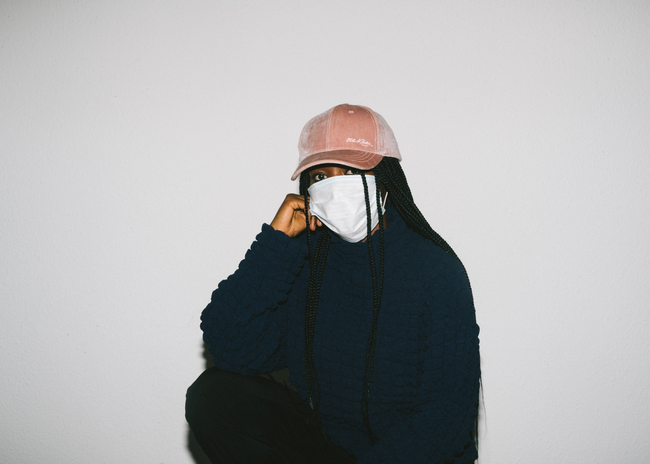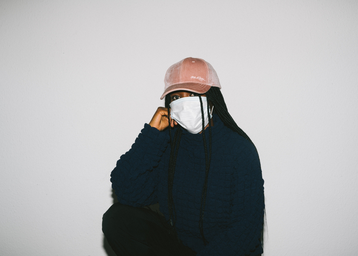Over the last seven months, COVID-19 has cancelled the Rory Gilmore-esque college experience (hello, Zoom University) and flushed in frequent FaceTime dates with friends. Cases have been on the rise as colleges have opened doors, with many Americans pointing an accusatory finger at Gen Z.
According to a Business Insider report, people under age 23 are foolishly taking advantage of cheap airline flights, crowding at beaches and even partying on booze cruises during spring break. So yes, it makes sense for a non-Gen Z’er to get all Rocky and Apollo Creed at the journalism college student with a Starbucks iced coffee in hand (me) – but a recent Harris poll says otherwise.
After assessing more than 1,000 U.S. teens and adults ages 16 to 23, nearly 80% wear a mask in public and stay home if experiencing COVID-19-like symptoms. More than half practice social-distancing and (here’s the kicker): 85% said they would swap in-person classes for virtual learning if it meant socializing sooner.
“These findings are a stark contrast with the college-town outbreaks and scenes of crowded bars that have helped create a narrative of careless young people spreading the virus,” Sam Baker, health care editor at Axios shared.
Some Gen Z’ers were guilty for disregarding CDC guidelines and what Dr. Fauci has been preaching at the peak of the pandemic. But as stress about the virus is surging, students are taking a strict stance on the situation. As they should be, because being socially distant means *more time* to watch the seven seasons of Gilmore Girls, living vicariously through Rory’s college years amid virtual learning – a silver lining, if that.

“Gen Z is young, so we are looking a lot toward generations ahead of us – to our parents, teachers and elders,” Kama Hagar, certified holistic wellness coach, tells Her Campus. “Even though there is that phase of rebellion [present in Gen Z], we are still going to be wary to take it seriously. We’re being told this is a global pandemic, so we’re taking that as a global pandemic.”
And, even though wearing a mask can be wearing down Gen Z’s optimism, the generation is still resilient. According to a recent Colgate study, though three-quarters of Gen Z Americans forfeited major life opportunities (i.e. education, career, collaboration), they are modestly more optimistic than they were before the pandemic, with 80% believing they have the power to put optimism into action.
“Gen Z is a lot more conscientious than any of the other generations, and there have been a lot of studies of this pre-pandemic,” Dr. Deepika Chopra, Optimism Doctor and a doctorate of clinical psychology said. “They are more conscientious financially, environmentally, and even socially. They are extremely action-oriented and filled with so much optimism and hope.”
This year has certainly proved we need to be vigilant to the virus and versatile to variations in our schedules. And hey, turning major milestones (like starting your first semester of college) into makeshift happenings (virtual orientations instead of gatherings at your dorm) can make you feel depleted. Below is a look at how Gen Z can employ wellness practices.
View self-care as multidimensional
Hagar specializes in the wellness modalities of meditation, Hawaiian healing and Reiki (I didn’t know what it was either at first, so here’s the 411). She believes a keen eye to wellness is what Gen Z needs to pour into for optimal wellness.
“I always talk about self-care, a word that’s been used so many times right now, but self-care is multidimensional,” Hagar notes. She added its four dimensions are emotional health, physical health, mental health and spiritual health. She poses the following Gen Z guide to ensure you’re tending to each one of these areas:
Physical Health:
-
How are you moving throughout the day?
-
Are you going on walks?
-
Are you doing some yoga?
-
Are you doing some high-intensity interval training?
-
Are you eating well?
Mental Health:
-
Are you stimulated?
-
Are you learning?
-
Are you feeling soothed?
Hagar says meditation is the ideal self-care tactic because, as she claims, “we never let the mind rest.”
Emotional health:
-
Are you getting in your social time?
-
Are you talking to your friends?
-
Are you staying social in creative ways (like having Zoom parties or socially-distant picnics)?
Spiritual:
Hagar says this will look different for everyone, but this realm includes anything from religious faith to spending time in nature to engaging in fulfilling activities that bring you joy. She says viewing self-care in a four-pronged, multidimensional way is superlative for achieving balance. “It’s going to look different from person to person, but balance is whatever you feel you need in your life based on your goals and intentions,” Hagar said.
Set positive intentions each morning (after getting enough sleep)
Setting intentions at the beginning of every day, Hagar added, cements a sense of balance to avoid burnout and have optimal wellness during this time. Whether it’s a three-goal list or telling yourself I’m confident as the sun rises, having the power to curate your day is empowering and soul-serving.
To ensure the optimal potential for these mindful thoughts, Chopra believes sleep is an integral component that makes all the difference. “Keep a very mindful eye on how much uninterrupted, quality sleep you’re getting,” she notes. “It’s easy for Gen Z to say I don’t need that much sleep, but it’s the most underrated yet most powerful health tool that we have.”
Be proud of your accomplishments – both big and small
Gen Z not only has college tests to worry about – now, COVID-19 tests provide a newfound (and highly disliked) anxiety. A jam-packed schedule, coupled with adjusting to the new normal, can be overwhelming. To combat these feelings, Hagar advocates for taking breaks, something that seems like common sense but is oftentimes overlooked. “If I need a midday walk, a stretch, a matcha, a chat, or whatever I need to do, I do that for myself,” she said. “That’s how I know I can produce the best work and show up the best I can – that’s really what matters.”
Chopra echos hopping on the taking-breaks train, saying it is easy for the entire day to pass without us moving our bodies, the exception being for food and bathroom breaks. She recommends taking a walk and even embracing your inner Addison Rae by learning some TikTok dances as important strategies to release built-in energy.
Grace yourself with gratitude (seriously, this one is important)
Sure, that Camilla Cabello concert you wanted to sing Havana ooo na na at was canceled (it’s still a sensitive subject for me). Maybe you feel like every day simply passes by (which it has – when did we leave March?). But, gratitude is a mindset you should grab a stronghold of during this time, according to Hagar.
“There’s this new sense of not taking anything for granted, and as soon as we come back into the previous normal, we will probably lose that pretty quickly,” she says. “I encourage everyone to stay so grateful for the things you are missing right now – the concerts, the gatherings, the people, the health, the lack of fear in the world – all of these things we had no idea were so important until they were taken from us. We’re almost lucky to have this moment in so many ways.
“What the polls don’t take into account is emotional and mental health,” concludes Hagar. “How people are doing is all over the board: some people are thriving, some are worried or scared, and some people change from day to day. People right now have gone through big changes. A lot is on hold, the future is completely unknown and there’s some fear in that. It’s really important to reach out to each other, to our Gen Zs and even millennials.”



